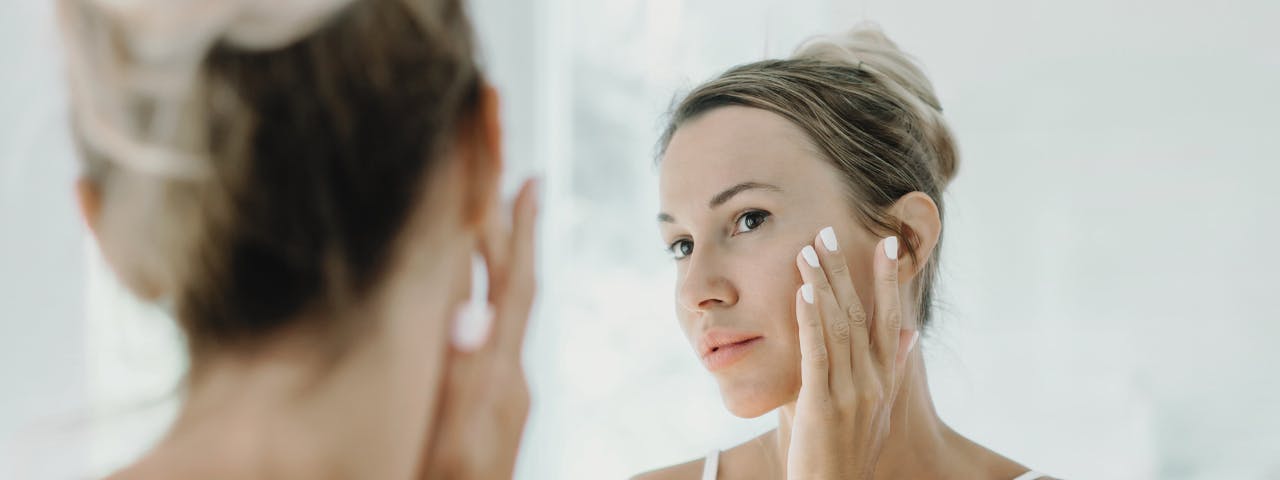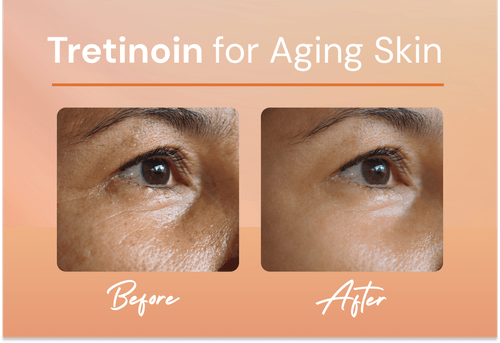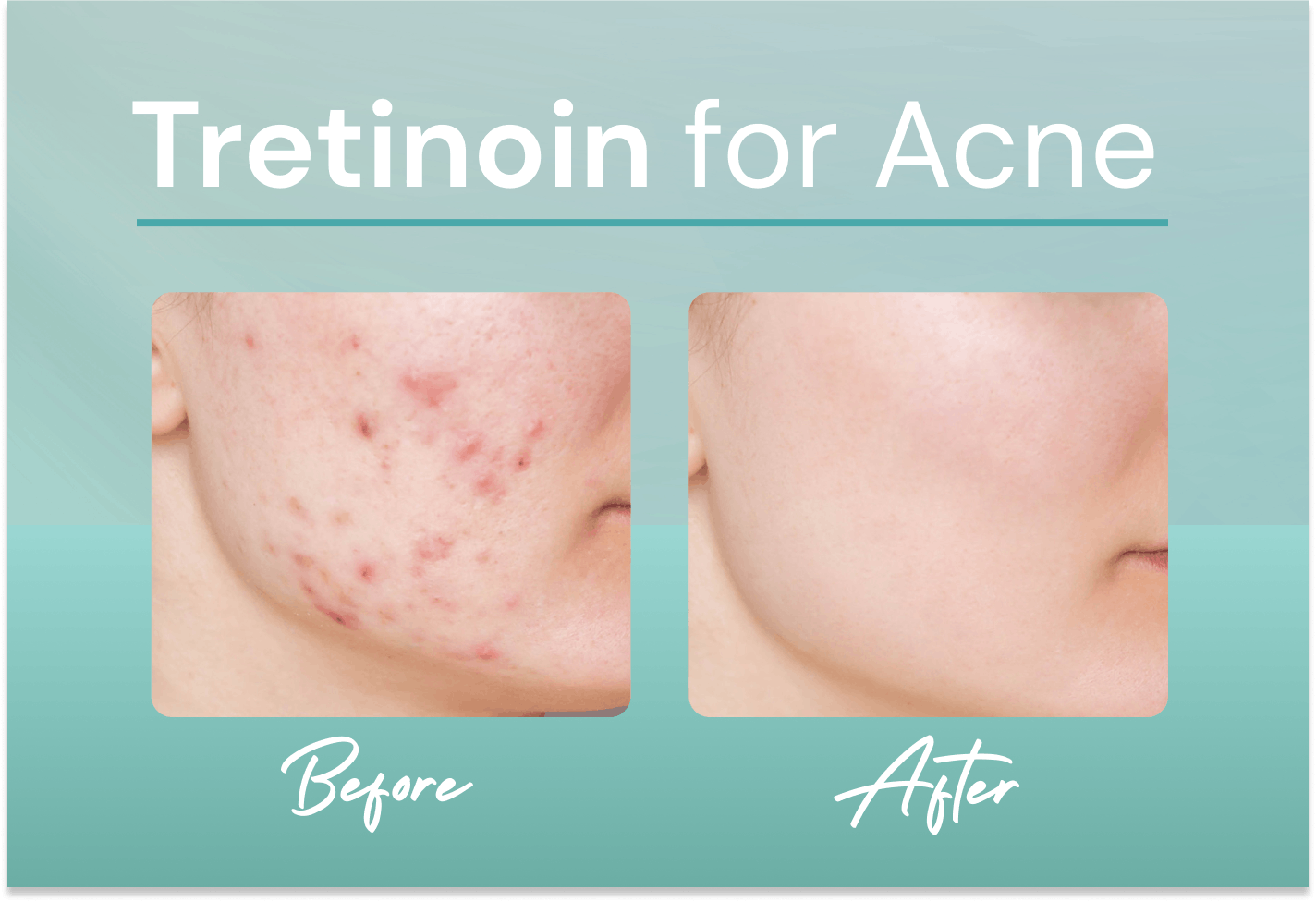What is hydroquinone?
Hydroquinone is a topical skin lightening treatment used for hyperpigmentation, melasma, freckles, scars and sun spots on skin. A quick Google Images search of “hydroquinone before and after” will illustrate why it’s widely considered the “gold standard” for hyperpigmentation – it works!
How does it work?
The treatment inhibits an enzyme called tyrosinase, which then halts production of melanin (the pigment which gives our hair and skin its color) and prevents dark patches from getting darker, while fading any existing dark spots. While we’d all love to find a way to remove dark spots on the face overnight, typically the cream takes a few weeks to begin taking effect.
Is it safe?
Hydroquinone has earned somewhat of a bad reputation, largely due to misuse, which is why it’s important to use the hyperpigmentation treatment only as prescribed.
“The most typical misuses of it are over-usage and using it for long periods of time, which can lead to its side effects,” says Dr. Reid Maclellan, Cortina founder and CEO, Adjunct Faculty at Harvard Medical School and director of Proactive Dermatology Group. “This has led to bans in some places, including the EU, since 2001, which only allows for under 1% of hydroquinone in products.”
Dr. Reid suggests diluting hydroquinone with vitamin C serum, glycolic acid, kojic acid or other topical steroids to avoid using too much and to protect skin while doing so. He notes Vitamin C is a particularly good option since it also protects against sun damage and discoloration.
Avoid long-term use and continue using sunscreen alongside the treatment, but ditch exfoliants. Buying black-market versions is also a no-no, since some have potentially-dangerous ingredients like mercury added into them.
What are the risks and side effects?
The product can cause skin rashes or discoloration and if misused, it can have the opposite effect – causing ochronosis, which darkens skin instead of fading it.
A common concern, and part of the reason why the FDA proposed a ban in 2006, is a suspected link with cancer. Studies on animals have shown evidence of being a carcinogen, but there’s a lack of sufficient human studies. “You need to take the dosage levels and delivery systems in the study into consideration," advised dermatologist Dr. Corey L. Hartman, MD, in a Refinery 29 feature. "There has yet to be a study that substantiates claims that it causes cancer in humans."
However, Dr. Reid notes skin cancer could be a particular risk. “In some cases, it has also been found that hydroquinone can put you at higher risk for melanoma as it removes the top layer of the skin, weakening the skin barrier,” he says.
Using the product during pregnancy is often discouraged due to its high rate of absorption into the bloodstream, but strong evidence of harm to human pregnancies is lacking, with one African study showing little difference in the pregnancy outcomes of those who did and didn’t use skin-lightening treatments while expecting.
What other options are there for treating hyperpigmentation and sun spots on skin?
Alternative treatments used by Dr. Reid include laser or alternative serums such as kojic acid, tretinoin, or lactic/glycolic acid.
References
Proposed Rules. Federal Register, Vol. 71, No. 167. Retrieved from https://www.govinfo.gov/content/pkg/FR-2006-08-29/pdf/E6-14263.pdf
Kari, FW., Bucher, J., Eustis, S L., Haseman, J K., & Huff, J E. Toxicity and carcinogenicity of hydroquinone in F344/N rats and B6C3F1 mice. Food and Chemical Toxicology, Vol. 30, Issue 9. Retrieved from:
https://pubmed.ncbi.nlm.nih.gov/1365401/
Dermatologists Share the Right Way to Use Hydroquinone for Best Results. Advanced Dermatology and Skin Cancer Associates. Retrieved from https://advanceddermatologymemphis.com/2020/07/20/dermatologists-share-the-right-way-to-use-hydroquinone-for-best-results/
So Your Derm Prescribed You Hydroquinone. Now What? Refinery 29. Retrieved from https://www.refinery29.com/en-us/hydroquinone-cream-uses
Skincare and nonsurgical skin rejuvenation. Plastic Surgery: Volume 2: Aesthetic Surgery. Retrieved from https://www.sciencedirect.com/topics/pharmacology-toxicology-and-pharmaceutical-science/hydroquinone
Safety of skin care products during pregnancy. The College of Family Physicians of Canada. Retrieved from https://www.ncbi.nlm.nih.gov/pmc/articles/PMC3114665/
Mahé, A., Perret, J.L., Ly, F., Fall, F., Rault, J.P., & Dumont, A. The cosmetic use of skin-lightening products during pregnancy in Dakar, Senegal: a common and potentially hazardous practice. Transactions of The Royal Society of Tropical Medicine and Hygiene, Volume 101, Issue 2. Retrieved from: https://academic.oup.com/trstmh/article-abstract/101/2/183/1849902?redirectedFrom=fulltext



